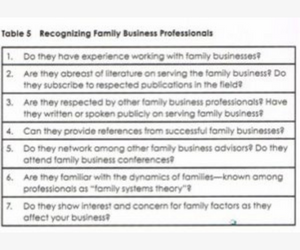Premenopausal Women With Low Bone Density
LOW BONE DENSITY CAN OCCUR IN PREMENOPAUSAL WOMEN
Although osteoporosis is mostly a disease of older women, under certain circumstances, premenopausal women may also be vulnerable. There are disease states and medications that cause low bone density in premenopausal women. These including: celiac disease, cystic fibrosis, rheumatoid arthritis, epilepsy, eating disorders, and any disease with increased inflammation. In addition certain lifestyle habits may contribute to or exacerbate premenopausal bone loss; such as smoking, excessive drinking, inadequate calcium and vitamin D, and insufficient exercise. Some cases are genetic. In others, the cells that form new bones do not function well. Fractures can also affect women in the third trimester of pregnancy or during breastfeeding. In other cases, we just don’t know the cause.
TESTING FOR LOW BONE DENSITY IN PREMENOPAUSAL WOMEN
In most cases, we discourage premenopausal women from having bone density exams. For one thing, it’s difficult to interpret the results in a younger woman. She may be at the lower end of the bell-shaped curve, but that doesn’t mean a woman is at short-term risk for fractures. Further, a thin, petite woman may have a falsely low reading because the scan is two-dimensional, capturing height and width, but not the depth of a bone. Also, small women don’t need large bones because their bones are not bearing a lot of weight. On the other hand, there are situations in which measuring bone density is highly appropriate.
Bone density scans are to be performed if a premenopausal woman has a disease known to have a bad effect on the skeleton. It should also be performed if she’s had a fracture that’s not easily explained by the degree of trauma; a low-trauma fracture. A low-trauma fracture is defined as one that occurs with trauma equivalent to a fall from standing height or less. For example, a woman who breaks a bone after a fall on a sidewalk. This is in contrast to a high-trauma fracture that comes from falling down a flight of stairs or a motor vehicle accident.
CASES WHERE A MEDICAL EVALUATION IS NECESSARY
In cases where there is an unexplained broken bone, and low bone density is found on a bone density scan, it is very important do a thorough medical evaluation to make sure that there isn’t a treatable underlying cause. Celiac disease, for example, can be asymptomatic and may only present with fractures. Diagnosing an unsuspected underlying disease, such as asymptomatic celiac disease, and treating it specifically is much more effective than treating the low bone density itself. If a woman has celiac disease, it is usually much more effective to put her on a gluten-free diet than to give her medications to increase bone density.
LIFESTYLE APPROACHES TO TREATING LOW BONE DENSITY
If an individual has low bone density but no fractures, I usually recommend some lifestyle changes along with observation rather than medications. Lifestyle changes that may help prevent fractures and improve bone density include: quitting smoking, reducing or eliminating alcohol use, and engaging in plenty of weight-bearing exercise, such as walking, jogging, running, dancing, or using an elliptical machine. Interestingly, lifting weights doesn’t have a large effect on bone density, even though it’s a good thing to do for other reasons.
The individual should make sure she’s getting adequate calcium and vitamin D, preferably from her diet. WebMD has useful information on sources of dietary Vitamin D and calcium, http://www.webmd.com/food-recipes/guide/calcium-vitamin-d-foods. However, too much calcium could be harmful. She should make sure that the total between diet and supplements is not much more than 1000 mg per day. Similarly, too much Vitamin D can also be harmful. I usually recommend 1000 IU daily and then adjust to maintain the blood level at around 30 ng/ml.
BE CAUTIOUS ABOUT PRESCRIBING MEDICATIONS FOR LOW BONE DENSITY
Prescribing medications for childbearing-age women with low bone density is complicated. Some medications can cross the placenta. Biophosphonates are a Category C drug, meaning they should be avoided in pregnancy. Teriparatide and denosumab should not be used during pregnancy. To further complicate the issue; bisphosphonates may persist in the bones long after the patient is no longer taking them. They can even still cross the placenta after being discontinued. A woman of childbearing age should agree to use contraception if it is medically necessary to treat her low bone density pharmacologically.
Search Articles
Latest Articles
Ukraine’s Mental Health Crisis & AI Solutions
https://aablanco.substack.com/p/ukraines-mental-health-crisis-and?utm_source=post-email-title&publication_id=1780826&post_id=153290811 Publication –aablanco.substack.com
Tackling Trauma Through Artificial Intelligence
https://www.psychologytoday.com/us/blog/to-end-human-trafficking/202411/tackling-trauma-through-artificial-intelligence Publication –psychologytoday.com
The Diplomat Mitzi Perdue Nantucket Ukraine
https://www.n-magazine.com/the-diplomat-mitzi-perdue-nantucket-ukraine Publication –n-magazine.com
An Explosive Choice: Landmines and Ukraine
https://cepa.org/article/an-explosive-choice-landmines-and-ukraine/ Publication –cepa.org
Subscribe to Updates
About Author

Mitzi Perdue is the widow of the poultry magnate, Frank Perdue. She’s the author of How To Make Your Family Business Last and 52 Tips to Combat Human Trafficking. Contact her at www.MitziPerdue.com
All Articles
Choosing Your Family Business Advisors
Choosing Your Family Business AdvisorsKnow when you need to get help. People often ask me the secret of Frank Perdue’s success. He had to do hundreds of things right. He had to be able to see the big picture as well as be detail oriented. But there was something else:...
Substance Abuse and the Family Business
Substance Abuse and the Family Business When it comes to substance abuse, members of a family business are no more immune than the rest of the population. However, as family business advisor Loyd Rawls points out, the consequences can be more dire because serious...
Infertility: Advances In Treatment
Infertility: Advances In TreatmentAge and Infertility are Linked Infertility affects roughly 12% of women. By the time a woman is in her early 40s, her chance of infertility rises to 20%. It’s a particularly difficult problem for the older woman because the quality...
Career Advice for Young People: Shut Up and Listen!
Career Advice for Young People: Shut Up and Listen! Jack Tatem, a former Perdue Vice President, has some serious advice for young people. It’s simple and it can make a big difference in your career. It has to do with listening. The advice is, “Shut up and listen!” He...
Embedding The Family’s Values by Creating an Ethical Will
Embedding The Family’s Values by Creating an Ethical WillOriginal Article written by Mitzi can be found here. Much as I admired Frank Perdue for his success with his family poultry business, I admired him even more for his success as a family man. Since the happiness...
6-Step Solution to Almost Any Problem
6-Step Solution to Almost Any Problem 1. Describe the Problem. Preferably do this in writing. The act of putting the problem into words can clarify your thinking. 2. Write Down the Obstacles. Although I’m a fan of positive thinking, I’m also a fan of research...





